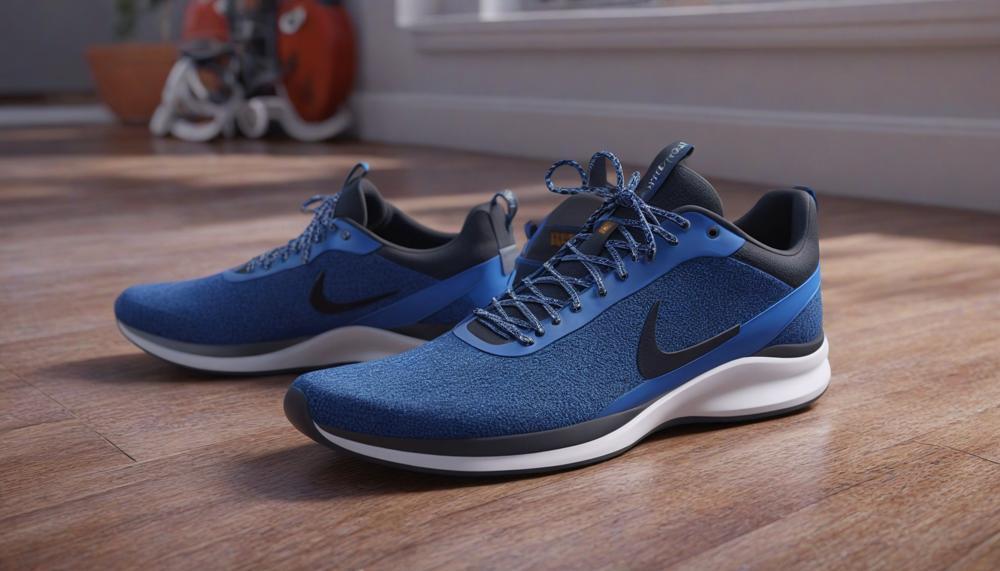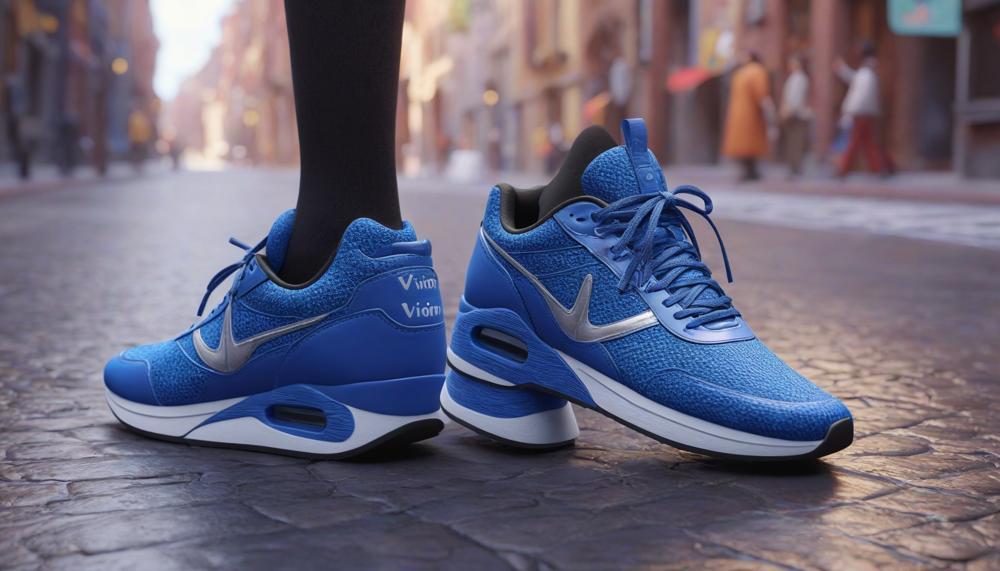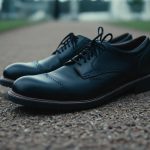Are Vionic shoes good for plantar fasciitis? Yes, they can be quite beneficial. Vionic shoes are specifically designed with features that aim to alleviate the pain and discomfort associated with plantar fasciitis, a condition that affects many by causing severe heel pain and foot discomfort. If you’re grappling with this condition, here’s how Vionic shoes might help:
- Arch Support: Vionic shoes provide excellent arch support, which is critical for those suffering from plantar fasciitis. This support helps to stabilize the foot and reduce stress on the plantar fascia.
- Deep Heel Cup: The design includes a deep heel cup that ensures better weight distribution across the foot, significantly reducing the pressure on your heel and mitigating pain.
- Quality Materials: These shoes are made from durable materials like leather and suede, combined with breathable fabrics to keep your feet comfortable and dry, further preventing irritation.
While Vionic shoes offer these advantages, it’s also important to remember that they might not be the perfect solution for everyone. The effectiveness can vary depending on the individual’s specific foot structure and the severity of their condition. Here’s a closer look at why Vionic shoes are worth considering if you suffer from plantar fasciitis:
- Targeted Design: The shoes are crafted to address the needs of those with foot pain, emphasizing stability and support where it’s most needed.
- Versatility in Style: You don’t have to sacrifice style for comfort as Vionic offers a range of designs from athletic shoes to dressier options.
- Customizability: With removable insoles, you can insert custom orthotics if needed, making them adaptable to your specific support requirements.
This introduction sets the stage for a detailed discussion on how Vionic shoes might just be the answer you’re looking for to manage your plantar fasciitis effectively.
Whether you’re at work or on a walk, understanding the specific features that aid in comfort and support can lead to better daily foot health and overall quality of life.
Our top picks:
Contents
| Shoe Model | Key Features | Best For |
| Vionic Walker Classic Shoes | Leather upper, removable orthotic footbed, deep heel cup, rubber outsole for traction | Daily walking and extended wear |
| Vionic Tide II Toe Post Sandals | Built-in orthotic footbed, biomechanical design, neoprene lining, padded straps | Summer wear, casual outings |
| Vionic Josie Kitten Heel Pumps | Low heel, contoured footbed, cushioned insole, rubber outsole | Office wear, formal events |
| Vionic Adilyn Quilted Slide Slippers | Quilted upper, soft lining, cozy footbed, flexible EVA midsole | Indoor use, home comfort |
Vionic shoes stand out as a beacon for those battling plantar fasciitis, offering not just comfort but a blend of style and therapeutic support. Each model, from the robust Vionic Walker Classic Shoes to the sleek Vionic Josie Kitten Heel Pumps, is meticulously designed to cradle the foot and reduce the strain on the plantar fascia.
Whether you need a reliable companion for daily walks or a classy touch for a night out while keeping your foot pain in check, Vionic provides a range of options.
The key lies in the integrated orthotic footbeds and thoughtful design that promote a natural alignment, making each step easier. For those who cherish indoor comforts, the Vionic Adilyn Quilted Slide Slippers offer a snug sanctuary for your feet.
Meanwhile, the Vionic Tide II Toe Post Sandals will keep your summer strolls light and pain-free with their superior arch support and cushioning. Each option brings you a step closer to both style and comfort, easing the pains of plantar fasciitis with every step you take.
How we made our picks
We selected the top Vionic shoes for plantar fasciitis based on a rigorous set of criteria aimed at ensuring optimal comfort, support, and suitability for various activities. Here are the detailed factors we considered:
| Criterion | Description | Details |
| Variety of Footwear Options | Wide selection of styles | Includes walking shoes, dress shoes, and everyday shoes, catering to diverse needs and occasions. |
| Breathable Design | Cool and ventilated | Features mesh upper with engineered knit construction for improved airflow. |
| Comfortable Footbed | Enhanced cushioning | Removable EVA footbed covered in mesh for added ventilation and comfort. |
| Proven Technology | Support and relief | Utilizes Vionic technology to reduce overpronation and alleviate pain associated with plantar fasciitis. |
| User Recommendations | Trusted by sufferers | Highly recommended by individuals with plantar fasciitis for its effectiveness in pain relief. |
| Versatility | Suitable for various activities | Designed for everyday wear, fitness activities, and long hours on feet. |
| APMA Seal of Acceptance | Professional endorsement | Recognized by the American Podiatric Medical Association (APMA) for quality and performance. |
| Expert Endorsement | Backed by professionals | Recommended by Dr. Andrew Weil, a notable figure in integrative medicine. |
| Performance Features | Design for active use | Includes action lacing system and full-grain leather or suede uppers for a secure fit and smooth transition. |
| Recovery Aid | Therapeutic benefits | Specifically designed to aid in the recovery and management of plantar fasciitis. |
Our choices aim to provide both style and relief, ensuring you can stay active and pain-free.
The best shoes for plantar fasciitis
Vionic shoes stand out as an exceptional choice for individuals suffering from plantar fasciitis due to their robust support and advanced comfort features. These shoes are designed specifically with Orthaheel technology, which provides essential arch support and encourages proper foot alignment, mitigating the heel pain typically associated with this condition.
Key Features:
| Feature | Description | Benefits |
| Orthaheel Technology | Designed to offer biomechanical orthotic support. | Reduces overpronation, relieving plantar fasciitis stress. |
| APMA Seal of Acceptance | Certification by the American Podiatric Medical Association. | Assures that the footwear is beneficial for foot health. |
| Lightweight Design | Makes the shoes easy to wear without adding stress to feet. | Enhances comfort, ideal for prolonged wear. |
| Style Variety | Available in multiple styles and colors. | Ensures that personal preferences and lifestyle needs are met. |
Vionic’s footwear collection includes options like the Ngage 1.0 Sneakers and the Agile Kea Shoes, each tailored for different activities and preferences while maintaining the same level of therapeutic support. Their sleek and trendy designs also mean that style is not sacrificed for comfort.
Hence, Vionic shoes not only aid in alleviating the pain caused by plantar fasciitis but also cater to various fashion preferences, making them a top recommendation for anyone seeking both relief and style.
More footwear and insoles to consider
More footwear and insoles to consider for individuals with plantar fasciitis, besides Vionic shoes, include a variety of supportive and cushioned options designed to alleviate foot pain and improve gait. Below, I have detailed a selection of shoes and insoles that are well-regarded for their effectiveness in managing the discomfort associated with plantar fasciitis.
Footwear
- Brooks Adrenaline GTS: Renowned for its balance of cushioning and support, perfect for maintaining stability.
- Asics Gel Kayano: Features a gel cushioning system that absorbs shock, ideal for those who need extra joint protection.
- New Balance 990v5: Offers exceptional support and cushioning, with a durable outsole that’s suited for long periods of wear.
Insoles
- Powerstep Pinnacle: Offers strong, medical-grade foot support with layers of foam for cushioning.
- Superfeet Green: Known for its high arch and deep heel cup that stabilize the foot and reduce heel pain.
- Scholl’s Plantar Fasciitis Pain Relief Orthotics: Specifically designed for people suffering from plantar fasciitis, providing both immediate pain relief and protective cushioning.
The table below presents these alternatives with their key features:
| Product | Type | Key Features |
| Brooks Adrenaline GTS | Shoe | Balance of cushioning and support, stability |
| Asics Gel Kayano | Shoe | Gel cushioning, shock absorption |
| New Balance 990v5 | Shoe | High support and cushioning, durable outsole |
| Powerstep Pinnacle | Insole | Medical-grade support, foam layers |
| Superfeet Green | Insole | High arch, deep heel cup |
| Dr. Scholl’s Plantar Fasciitis Pain Relief Orthotics | Insole | Pain relief, protective cushioning |
Each of these options has been chosen for its proven effectiveness in reducing the pain associated with plantar fasciitis and improving foot health.
What is plantar fasciitis?
Plantar fasciitis is a prevalent foot condition marked by inflammation of the plantar fascia, a robust band of tissue that stretches from the heel to the toes across the foot’s base.
This band is critical in maintaining the arch and absorbing shocks during movement.
What causes plantar fasciitis?
Plantar fasciitis stems from repeated stress and strain on the plantar fascia, the ligament connecting your heel to your toes. This condition can result from various factors, including prolonged standing, improper footwear, and biomechanical issues like flat feet or high arches.
Over time, this constant tension leads to microtears in the tissue, causing pain and discomfort.
Why do some people experience plantar fasciitis and how can it be prevented?

Certain factors make individuals more susceptible to plantar fasciitis:
- Foot Structure: People with flat feet or high arches are more prone to this condition due to uneven weight distribution.
- Activity Level: Runners and those who spend long hours on their feet place constant stress on the plantar fascia.
- Weight: Excess body weight increases the load on the plantar fascia, leading to degeneration.
- Improper Footwear: Wearing shoes without adequate arch support or cushioning can exacerbate the strain on the foot.
Prevention Tips
| Tip | Description | Example |
| Supportive Shoes | Wear shoes with good arch support and cushioning to reduce stress on the plantar fascia. | Best Running Shoes for Flat Feet |
| Maintain Healthy Weight | Keep a healthy weight to reduce the load on your feet. | Effective Weight Loss Tips |
| Stretch Regularly | Incorporate stretching exercises for the feet and calves to keep the plantar fascia flexible. | Stretching Exercises for Feet |
| Rest and Recovery | Allow time for rest and avoid activities that put excessive pressure on your feet. | Fitness Injury Recovery |
Key Points
- Foot Structure: Individuals with flat feet or high arches need special attention.
- Activity Level: High-impact activities increase risk.
- Weight: Maintaining a healthy weight is crucial.
- Footwear: Proper shoes can significantly reduce stress on the plantar fascia.
By understanding these factors and implementing preventive measures, you can reduce the risk of developing plantar fasciitis.
How to choose the best shoes for plantar fasciitis
When choosing Vionic shoes for plantar fasciitis, several crucial factors should be considered to ensure maximum comfort and pain relief. Here are the key aspects to focus on:
| Factor | Description | Why It Matters |
| Arch Support | Vionic shoes are renowned for their built-in orthotic arch support. Look for styles with a deep heel cup and firm arch support to help distribute weight evenly and reduce strain on the plantar fascia. | This is essential for alleviating the stress on the plantar fascia, providing stability and reducing heel pain. |
| Cushioning | The shoes should have a thick, cushioned sole and a padded insole to absorb shock and provide comfort to the heel and forefoot. | Proper cushioning helps alleviate pain and pressure on the heel, making walking more comfortable. |
| Motion Control | Features such as a contoured footbed, deep heel cup, and medial and lateral support are vital. These help correct overpronation or supination. | Motion control ensures stability and prevents foot rolling, which can worsen plantar fasciitis symptoms. |
| Materials | Opt for shoes made from high-quality, durable materials like leather or suede. | Durable materials provide long-lasting support and comfort, contributing to the shoe’s overall effectiveness. |
| Fit | Shoes should fit well—neither too loose nor too tight. Try them on and walk around to ensure they are comfortable and supportive. | A proper fit prevents discomfort and exacerbation of plantar fasciitis symptoms. |
| Size | Accurately measure your feet and use Vionic’s size chart to find the right size. Consider various widths available. | Correct sizing ensures the best support and comfort, avoiding unnecessary strain on your feet. |
| Style | Vionic offers a wide range of styles. Choose a style that suits your needs and personal taste. | Choosing a style you like ensures you’ll wear the shoes regularly, which is key for consistent relief. |
| Price | Consider the cost as an investment in foot health. Vionic shoes can be pricier, but they offer targeted support for plantar fasciitis. | Investing in quality shoes can lead to long-term pain relief and improved foot health. |
| Reviews | Read reviews from other customers who have used Vionic shoes for plantar fasciitis. | Customer feedback can provide insights into the effectiveness and comfort of the shoes. |
Considering these factors can significantly enhance your experience and effectiveness in managing plantar fasciitis with Vionic shoes.
What to avoid when buying shoes for plantar fasciitis
When purchasing shoes for plantar fasciitis, certain features can exacerbate symptoms and should be avoided to ensure maximum comfort and support.
Inadequate Arch Support
- Avoid shoes that lack proper arch support. Insufficient support can strain the plantar fascia, leading to increased pain and discomfort.
Lack of Heel Cushioning
- Steer clear of shoes without sufficient heel cushioning. The heel bears significant pressure, and without adequate padding, it can worsen the pain.
Narrow or Tight Toe Box
- Shoes with a narrow or tight toe box should be avoided as they squeeze the toes and add pressure to the forefoot, aggravating plantar fasciitis.
High Heels or Pointy Toes
- High heels and pointy-toed shoes increase pressure on the forefoot and strain the plantar fascia. Opt for low, wide heels and rounded or square toe boxes.
Excessive Flexibility in the Sole
- Shoes that are overly flexible lack the stability needed for plantar fasciitis. Look for soles that offer moderate flexibility but do not bend easily in the middle.
Thin or Hard Soles
Conclusion
Vionic shoes are heralded as a shining solution for those grappling with plantar fasciitis. These shoes, with their specialized design, are engineered to address the unique challenges posed by this foot condition. The critical feature is the Orthaheel technology, which offers biomechanical orthotic support specifically designed to alleviate the intense heel pain associated with plantar fasciitis. By enhancing proper foot alignment and reducing overpronation, this technology helps diminish the daily discomfort experienced by sufferers.
The array of footwear options, including styles suitable for various occasions and activities, ensures that individuals don’t have to compromise on style while seeking comfort and relief. From daily wear to formal events, Vionic shoes provide a perfect blend of functionality and fashion. Moreover, the inclusion of durable materials like leather and breathable fabrics in their construction supports prolonged wear while ensuring the feet remain dry and comfortable.
What sets Vionic shoes apart is their commitment to combining therapeutic efficacy with aesthetic appeal. Whether it’s through the plush comfort of their quilted slide slippers or the elegant contours of their kitten heels, Vionic shoes promise to ease your plantar fasciitis symptoms stylishly and effectively.






